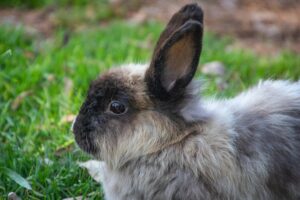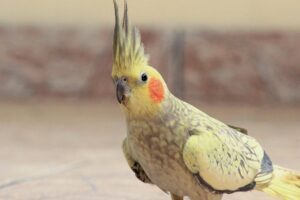Last Updated on 02/03/2026 by PetSmartify Editorial Team

Bringing a pet into your life is a joyful, life-changing decision, and a major, long-term commitment! To ensure a happy, healthy relationship for both of you, it’s crucial to find a companion whose needs perfectly align with your current lifestyle.
At PetSmartify, we believe the right match makes all the difference. Here is your comprehensive guide on adopting a pet and how to choose the right pet for your lifestyle.
Step1️⃣: Honest Self-Assessment – Know Your Lifestyle
Before looking at different species or breeds, take a moment to evaluate your own life realistically. Be honest about your limitations and resources for pet ownership.
| Factor | Questions to Ask Yourself | Low-Commitment Lifestyle | High-Commitment Lifestyle |
| ⏰ Time | How many hours are you away from home daily? How much time can you dedicate to feeding, cleaning, training, and playing? | Busy Professional: Out 8+ hours a day, frequent travel. | Work from Home/Active Retiree: Home most of the day, flexible schedule. |
| 💰 Budget | What is your annual budget for food, toys, grooming, routine vet visits, and emergency care? | Budget-Conscious: Looking for minimal ongoing costs. | Comfortable: Prepared for high-end food, routine grooming, and potential high vet bills. |
| 🏠 Space | Do you live in a small apartment or a house with a fenced yard? Does your landlord have pet restrictions (size, breed, number)? | Apartment/Small Home: Limited outdoor space, potential noise restrictions. | House with a Yard: Ample indoor and secure outdoor space. |
| ⚡ Activity Level | Are you a dedicated outdoor adventurer or a quiet homebody? | Sedentary/Relaxed: Prefer cuddling on the couch or short, gentle walks. | Highly Active: Daily runner, hiker, or enjoy intense play sessions. |
| 👨👩👧👦 Household | Do you have young children, other pets, or family members with allergies? | Sensitive Home: Toddlers, frail elderly, or known pet allergies (dander, hair). | Robust Home: Older children, no existing pets, no known allergies. |
| 🗓️ Longevity | How long of a commitment are you prepared for? | Short-Term: Less than 5 years. | Long-Term: 10, 15, or even 20+ years. |
Step2️⃣: Matching Pet Types to Your Needs When Adopting a Pet
Different animals have vastly different requirements. Use the table below to see which general category best fits your self-assessment.
🐶Dogs: The Loyal Companion
Dogs require the most time and attention, but offer unparalleled love and loyalty.
| Lifestyle | Good Fit | Considerations |
| Active | High-energy breeds (Border Collie, Labrador, German Shepherd) or most puppies. | Require intense, daily exercise (1-2+ hours), extensive training, and mental stimulation. |
| Relaxed/Apartment | Low-energy, calm breeds (Bulldog, older small breeds, senior rescues). | Still require daily walks and cannot be left alone for more than 4-6 hours without a break. |
| Allergy-Conscious | “Hypoallergenic” breeds (Poodle, Bichon Frise, Schnauzer). | No dog is 100% hypoallergenic. They require regular, often expensive, grooming. |



😺Cats: The Independent Pal
Generally lower maintenance than dogs, cats are great companions for busy lifestyles.
| Lifestyle | Good Fit | Considerations |
| Busy/First-Time Owner | Most adult cats or bondmates (a pair of cats). | Adaptable to small spaces, largely litter-trained, but still need daily play and litter box maintenance. |
| Social/Affectionate | Breeds like Siamese, Maine Coon, or Ragdoll. | Can be demanding for attention and may vocalize if left alone too long. |
| Relaxed Home | Senior cats or calmer breeds like Persian. | Wonderful lap cats, but may require extra grooming for long coats or special senior vet care. |



🐹Small Mammals (Rabbits, Guinea Pigs, Hamsters, etc.)
These pets are often good for families teaching responsibility or those with smaller homes.
| Lifestyle | Good Fit | Considerations |
| Families with Children | Guinea Pigs or Rabbits (under adult supervision). | Not “starter pets.” Require daily cage cleaning, specific diets (hay, fresh greens), and bond with their human family. |
| Small Spaces | Hamsters or Gerbils. | Nocturnal (may be noisy at night). Lifespan is often short (2-3 years). Need secure, large-enough cages for enrichment. |



🐦🐟🦎 Birds, Fish, and Reptiles: The Unique Pets
These pets often require specialized care, but offer unique companionship.
| Lifestyle | Good Fit | Considerations |
| Low-Interaction/Quiet Home | Fish (Goldfish, Betta, community tanks). | Not “no maintenance.” Require diligent water testing, filter changes, and proper tank setup, which can be costly. |
| Interactive/Time-Available | Parrots (Cockatiel, Budgie). | High-maintenance: Require daily social interaction, a large cage, can be loud, and can live for 15–50+ years. |
| Allergy-Safe/Unique | Reptiles (Lizards, Turtles, non-venomous Snakes). | Specialized care: Require precise heating/lighting, humidity control, and often a unique diet (insects, rodents). Need an exotic vet. |
Read our guide on caring for exotic pets and whether they are the right choice for you.



Step3️⃣: The Final Checklist for Adopting a Pet
You’ve narrowed down your choices, now, take these last critical steps.
- Do the Math: Create a detailed budget for the pet’s lifetime. Remember costs for food, supplies, insurance, routine vet care, and initial setup (cage, crate, tank, etc.).
- Meet & Greet: Spend time with the actual breed or species you are considering. A weekend at a shelter or a visit with a friend’s pet can offer a realistic view.
- Future-Proof: Consider your life five or ten years from now. Will you move? Have children? Change jobs? Your pet’s needs will remain, regardless of your life changes.
- Adopt, Don’t Shop: PetSmartify encourages checking local shelters and rescues first! Staff can often provide deep insights into a specific animal’s temperament and history, helping you find a perfect match.
Read our overview of the most popular pets and breeds in the US, ranked in 2026.
📝 Recap: The Long-Term Commitment of Pet Ownership
Remember that pet ownership is a multi-year responsibility.
- Lifespan: Dogs live around 10–15 years, and cats often live up to 20 years. Some bird and reptile species can live even longer! Ensure your five-year plan includes your pet.
- Financial Cost: Beyond adoption fees, factor in annual costs for quality food, routine vet care, necessary supplies (litter, bedding, toys), grooming, and an emergency fund for unexpected medical issues.
- Behavioral Needs: All pets need socialization, training, and mental enrichment. High-intelligence animals like Poodles and German Shepherds can become destructive if not given enough mental work to do.
Finding the right pet is a journey of self-discovery and research. When the match is right, the rewards are immeasurable. By honestly assessing your own lifestyle first, you set both yourself and your future companion up for a fulfilling and loving relationship. A pet that genuinely fits your life will bring immense joy, and not stress.
We wish you the best of luck! We hope this guide was helpful to you. 🐾
